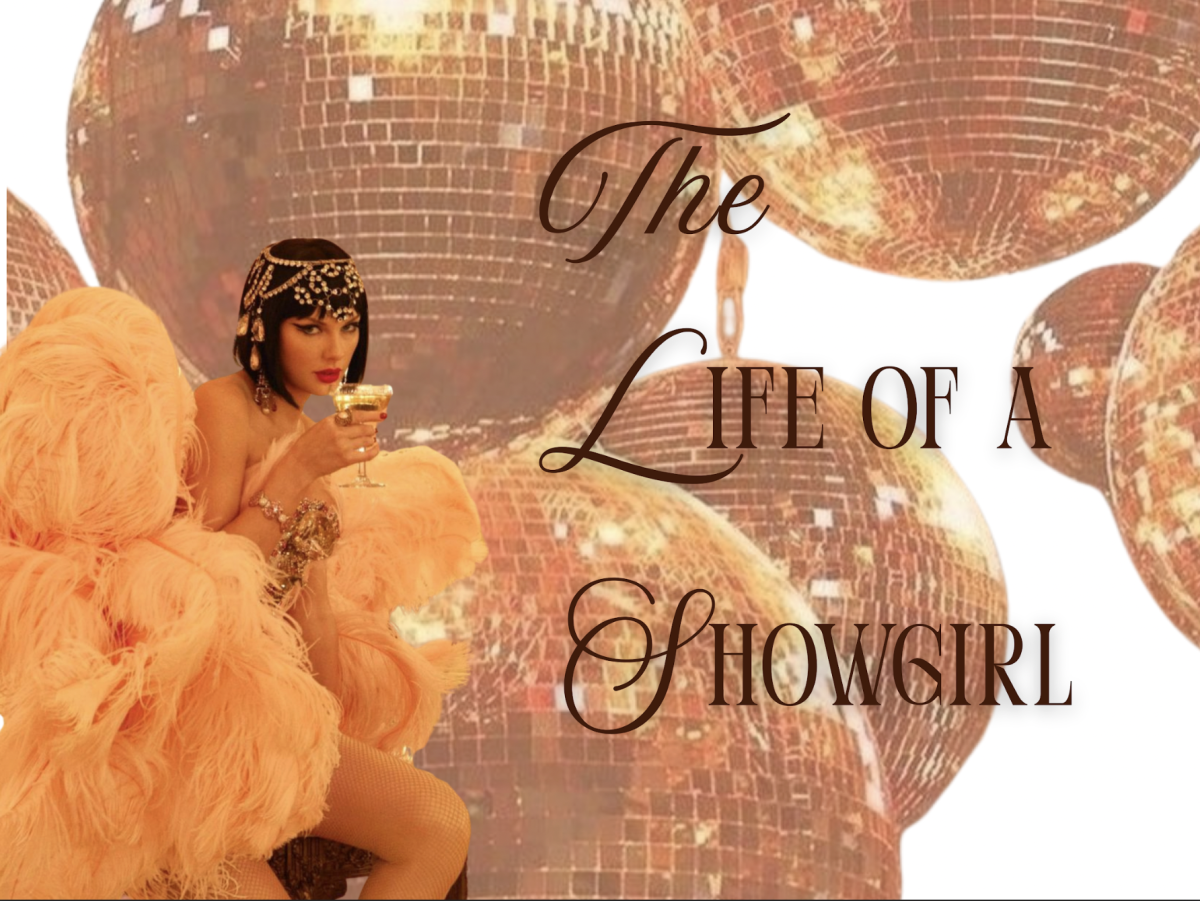American pop musician Taylor Swift released her 12th album, “The Life of a Showgirl,” on October 9. Comprised of 12 tracks, the album was written during Swift’s time on tour, and explores her life in the show business industry, combining production elements from her previous albums, such as “Reputation”, “1989,” and “Lover.”
“The Fate of Ophelia”
As a prolific lyrical poet and self-described “English teacher,” Swift frequently references Shakespearean scenes and figures in her writing. In true Swift fashion, she begins the album with “The Fate of Ophelia,” referring to Hamlet’s Ophelia, who goes mad after her lover rejects her. Swift flips the well-known narrative by crafting a fantasy about how her lover instead saves Ophelia; This may be linked to her recent engagement to Travis Kelce, claiming their love “rescued” her from further emotional hardship. This track sets the mysterious yet romantic tone for the rest of the album with its moody synth and haunting lyrics.
“Elizabeth Taylor”
The second track on the album, “Elizabeth Taylor,” is highly reminiscent of Swift’s older album, “Reputation.” Strong beats and passionate drumming are both trademarks of the “Reputation” era’s bold production. These stylistic choices make the song a high-energy hit, immediately drawing listeners in. However, this isn’t the only similarity between the two albums — “Elizabeth Taylor” explores Swift’s experience with public scrutiny and sexism in the music industry. In fact, the song is named after the late Hollywood actress Elizabeth Taylor, as Swift repeatedly asks, “Elizabeth Taylor/ Do you think it’s forever,” questioning whether the public criticism ever truly ends.
“Opalite”
“Opalite” is a stark contrast from the other songs on the album, with its upbeat, dreamlike tone and airy vocals. A tribute to her fiancé, the track centers around rediscovering happiness and love. The title references the man-made gemstone opalite, which is not only Kelce’s birthstone but also furthers the idea of creating one’s own light during difficult circumstances. The lyrics “You had to make your own sunshine/ But now the sky is opalite” allude to Swift’s idea of self-forgiveness and finding freedom from external pressures. Overall, this song is a refreshing break from the rest of the album, as it showcases a more hopeful side to her life.
“Father Figure”
“Father Figure” explores rivalry and betrayal. Known for her metaphorical lyrics, Swift embodies the conventional family man archetype, whose primary job is to protect the family. The idea of Swift being a “father figure” symbolizes how established artists mentor rising stars through the challenges of fame. Combined with the dramatic buildups and brooding synths, the dark lyrics highlight the twisted reality of mentorship in the show business: “I was your father figure/ You pulled the wrong trigger/ This empire belongs to me.” This may be indicative of Swift’s own fallout with record executive Scott Borchetta, who sold Swift’s label in 2019 — a betrayal that powers the themes of power explained in the song.
Since its release, the album continues to break records, including the most pre-saved album in Spotify history and the sale of 1.2 million vinyls, according to Spotify. Despite being a departure from her typical storytelling style, “The Life of a Showgirl” sheds light on the challenges and pressures of the media industry in a more theatrical manner, delivering a record that is both entertaining and thought-provoking.




